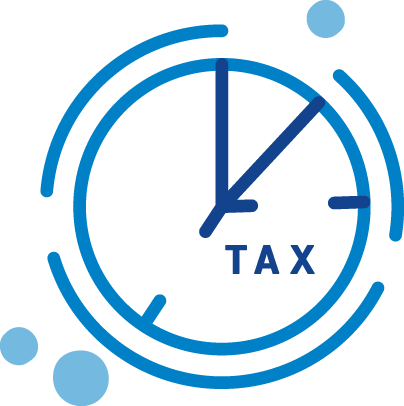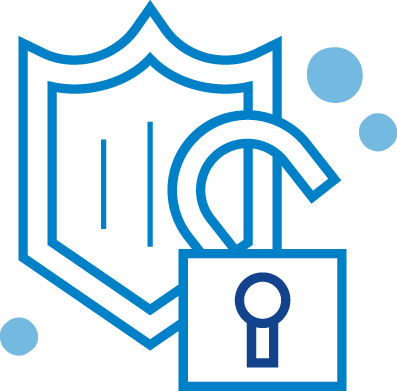
February 15, 2024

Taxpayer Beware:
Stay one step ahead of savvy scammers.
February 25, 2024
Tax season is often met with dread by Americans. For many, it is that familiar feeling that, yet again, unjoyful time will be burned to collect a year’s worth of finances, and we will sadly never get it back. The only bright spot is the possibility of calculating “the piper” will require a smaller payment than expected, or better yet, we are rewarded for our efforts with a cushy tax refund.
The IRS is one of the most challenging entities to trick up, but with the savvy talents of today’s online hackers it becomes a playground of swindle. Even those who consider themselves among the most diligent and watchful of personal finances can fall prey to the dreaded dark web of identity theft black marketing.
So, how can you avoid becoming a victim? Tax fraud comes in many forms, from phishing emails and fraudulent phone calls to fake IRS websites and in-person schemes. These scams prey on individuals’ fears and vulnerabilities, often masquerading as legitimate tax authorities or financial institutions.
By understanding the tactics employed by scammers, individuals can better protect themselves from falling victim to deception.
 5 Steps to Protect Yourself from Menacing Tax Scammers
5 Steps to Protect Yourself from Menacing Tax Scammers
As tax season 2024 approaches, use these helpful tips to avoid thieves and protect your hard-earned dollars:
- The IRS will never call or text you to request immediate payment or personal information. Typically, the IRS will mail a letter if taxes are owed. They can also come to your home or business in some cases. However, if a caller says they are with the IRS but asks for personal information, request an employee ID and call back using the main IRS phone number. If an IRS agent comes to your house, they will show a government ID and have your personal information already on hand. In this case, it is recommended to ask for the agent’s card and any paperwork they may have for you and tell them you will get back to them. Stay calm and seek professional assistance before responding.
- Keep all your tax information in an encrypted document vault. Even if your computer is compromised while surfing online, hackers will look for an easier target if your personal information is in an encrypted vault. If you have downloaded your IDSeal Pro-Tec app to your devices, you have one at your fingertips.
- Always use a secure internet connection. Unless you are on your home password-protected Wi-Fi, always use a reputable VPN, especially when filing your taxes online. Even a hotel Wi-Fi with login protection can leave you vulnerable to criminals.
- File your taxes early to safeguard against identity theft. In tax schemes such as these, criminals use stolen personal information to file fraudulent tax returns in your name and collect your refund. Filing early means the IRS is more likely to process your legitimate return before a scammer attempts to file one using your information.
- Choose a reputable tax preparer. Whether you do it yourself online or hire a professional, ensure the tax preparation service is known and secure. Avoid sending tax information in an unsecured email and instead upload it into a secure document portal.
 The Pitfalls of Procrastination
The Pitfalls of Procrastination
One of the most common mistakes individuals make is procrastinating when filing their taxes. While putting off this daunting task may be tempting, delaying tax submissions can have dire consequences. Not only can procrastination lead to missed deadlines and potential penalties, but it can also leave individuals vulnerable to identity theft and fraud.
If you have been beaten to the punch by a scheme-y identity thief who has stolen your social security or Tax Identification Number and filed taxes on your behalf, then you cannot file your own taxes, but the thief could also collect your tax refund money.
You can avoid unnecessary stress and safeguard your financial well-being by prioritizing timely tax submissions. If you are expecting a refund, an additional bonus is you will typically receive it faster if you file early at the start of the tax season when fewer returns are being submitted. Do not take any chances. File as soon as possible. That juicy book you have been reading or episodes of a favorite show will still be there when you are done.
 How Tax Scams Work and Their Consequences
How Tax Scams Work and Their Consequences
The consequences of falling victim to tax and/or financial fraud can be catastrophic. Many people think “it will never happen to me” and that occurrences of fraud are rare, but the reality is tax fraud is a growing problem. Add to that that most, if not all, of our personal information is now online, and it becomes easy to see why.
Everything from doctor’s offices and hospitals to financial institutions such as banks and advisory investment firms provide customer portals to sensitive personal and financial information. When any of these databases is hacked, the personal data there falls into the wrong hands of a hacker.
Enter the Dark Web. This is the digital equivalent of the wild west where the stolen information becomes profitable to the hackers. It is where anything from driver’s licenses to social security numbers are bought, sold, and traded for an astonishingly small amount of money. And, given the rampant increase in AI technology that is misused by cybercriminals to orchestrate hackings and data breaches, the cybercriminals grow more powerful and more challenging to stop.
Economic hardship and emotional distress are often not a consideration until it is too late. Financial ruin jeopardizes one's livelihood, erodes trust in financial institutions, and gives a sense of vulnerability and helplessness. From depleted savings to ruined credit, the ripple effects of financial devastation can reverberate for years, robbing individuals of their peace of mind and diminishing their prospects for a secure future.
 Top Strategies to Safeguard Your Finances
Top Strategies to Safeguard Your Finances
Follow these four essential tips to help protect your money and stay informed:
- Educate yourself about common tax frauds, IRS procedures, and emerging threats. Stay skeptical of unsolicited communications, especially when immediate action or sensitive information is demanded.
- Lock your device doors using robust authentication methods such as multi-factor authentication (MFA) to make your online accounts harder for criminals to access. Use strong passwords with numbers, letters, symbols, or phrases, and change them as often as possible.
- Monitor your money closely and stay on top of any Dark Web monitoring alerts. Your IDSeal monitoring provides a dashboard to view all your alerts in one place. Regularly check your bank statements, credit report and tax filing for any signs of suspicious activity.
- Act immediately if you suspect fraudulent activity or are unsure if a communication is legitimate, then consult with a tax professional or call the IRS directly for assistance. Never click any links contained in an email sent from a questionable source. Go directly to the source and search for what is needed there. If you think scammers have targeted you, seek professional guidance to help you recover. Silence only benefits the criminals.
Tax season will not feel like a poker game if the scammers cannot see your hand. Play the game right. Be proactive about your security measures and follow the tools in this guide. You will significantly reduce the risk of falling victim to scammers and protect your peace of mind.
Start protecting your identity today! Signing up is quick & easy
Remember, 1-in-4 Americans are the victim of identity theft. It's not a matter
of if you'll become a victim, it's when...
Get Protected